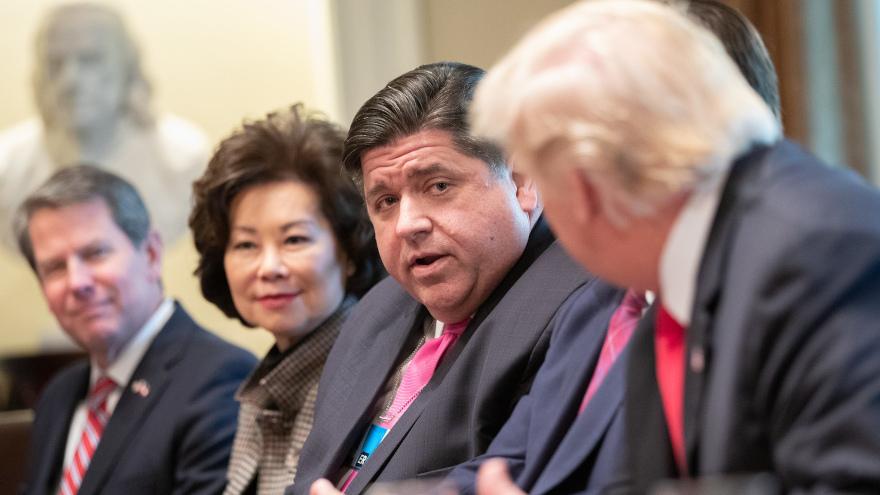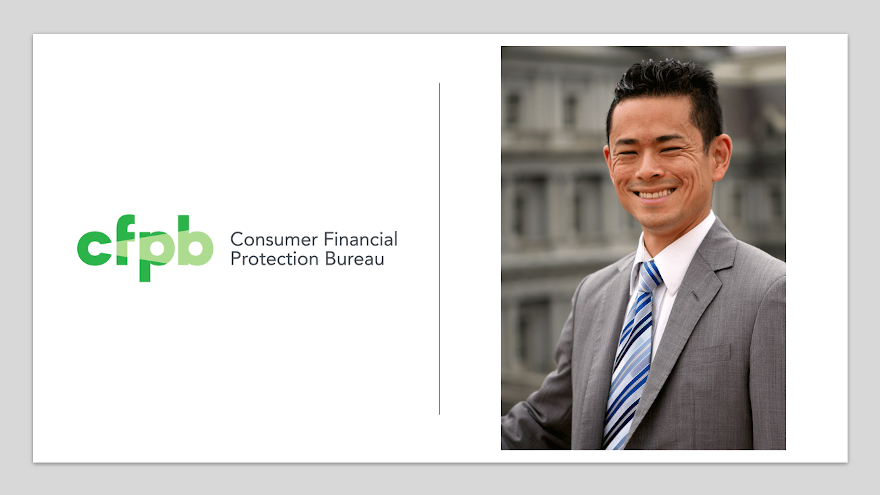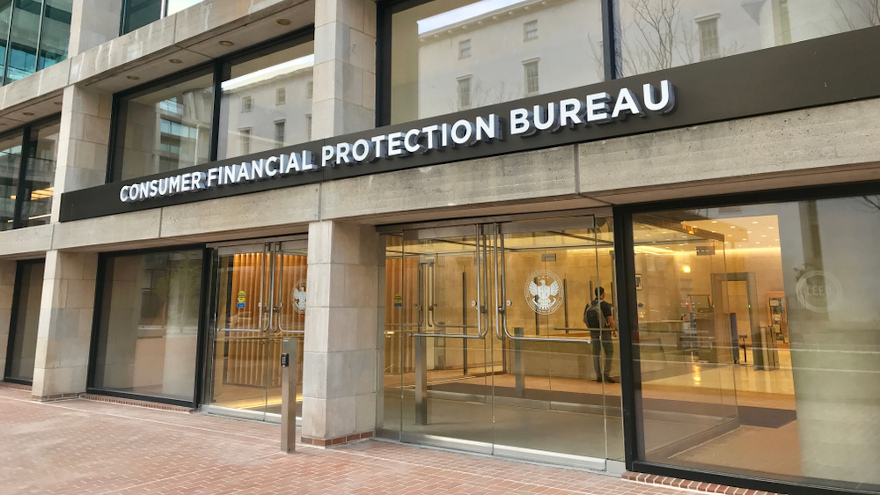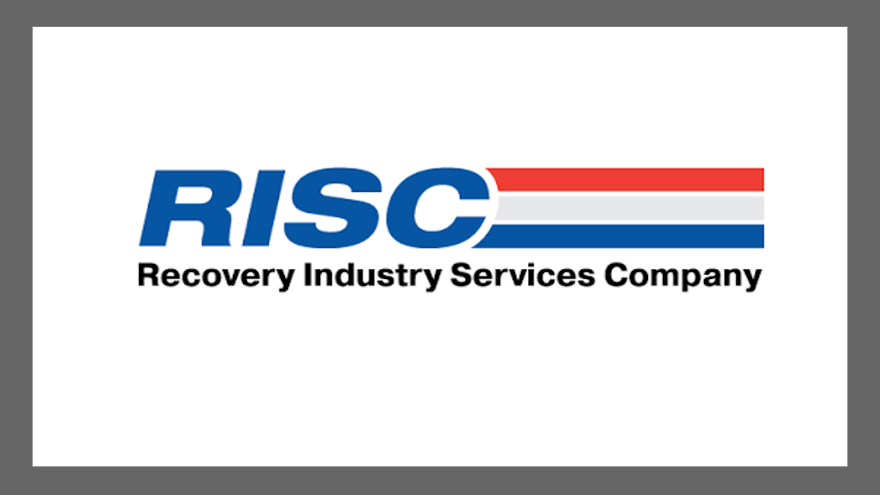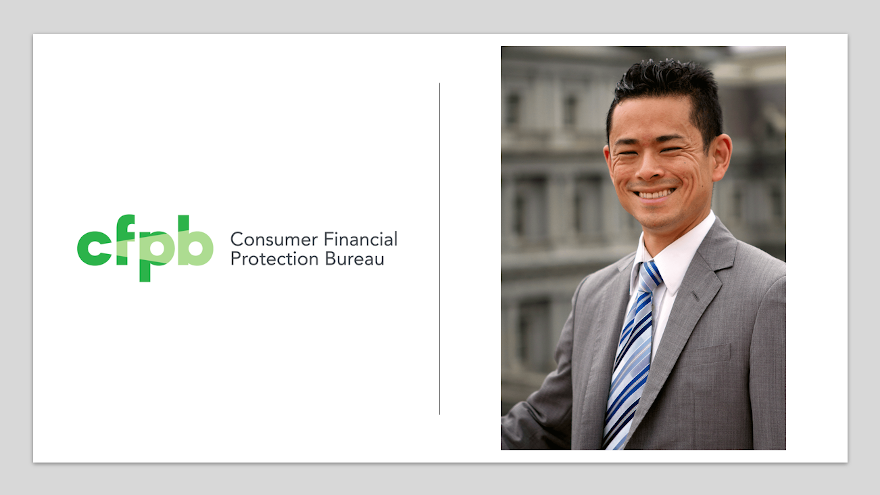Efforts by ACA International and other industry organizations connected with collections helped to generate what they called the “favorable ruling” earlier this month when the U.S. Supreme Court unanimously decided a case involving the Telephone Consumer Protection Act (TCPA) and definition of an autodialer.
In Facebook versus Duguid, ACA International recapped that the court held to qualify as an “automatic telephone dialing system” under the TCPA, a device must have the capacity either to store a telephone number using a random or sequential number generator, or to produce a telephone number using a random or sequential number generator.
“The Supreme Court’s decision in Facebook vindicates the more than decade of advocacy ACA International and its members have engaged in to seek clarity on the TCPA, which is often abused by lawyers in the plaintiffs’ bar seeking to profit off of small businesses and other legitimate informational callers. The Supreme Court’s decision is an important step forward in recognizing that Congress has always intended this statute for abusive telemarketers or bad actors, not legitimate callers that consumers need information from,” ACA International chief executive officer Mark Neeb said in a statement
“ACA and industry trade associations filed an amici curiae brief in the case to advocate for legal clarity when using modern methods to communicate with consumers as well as clarity on the definition of an autodialer,” Neeb continued.
“ACA has been advocating with the Federal Communications Commission, Congress, and at the Supreme Court to take action to provide clarity surrounding overbroad interpretations of an ATDS. This decision is a step forward in those efforts to clarify the law,” he went on to say.
ACA drilled deeper into the implications of this decision through an online training session featuring:
— Leah Dempsey, vice president and senior counsel of federal advocacy, ACA International
— David Kaminski, partner, Carlson & Messer LLP
That online session is available on this website.
Repossession agents and other recovery industry firms certainly do not have a shortage of options for training to remain up to date on compliance and other intricacies of what might be the most complicated segment of auto financing.
This week, the American Recovery Association (ARA) and Bassford Remele announced what they called a “groundbreaking” partnership that will bring “unparalleled” educational and compliance perspectives to both the finance and repossession communities.
ARA plans to utilize Bassford Remele’s trusted compliance and litigation experience to assist ARA members in developing a “culture of compliance’’ that will stand out across the recovery industry.
The partnership kicked off with an industry-wide webinar on Wednesday.
Bassford Remele is a full-service litigation firm based in Minneapolis. The firm has built strong relationships with business leaders in a number of industries, including credit and collections, background screening, secured lending and leasing, construction, agribusiness, health care and technology.
ARA highlighted that Bassford Remele’s lawyers have a depth of experience in various practice areas, including defense of consumer law claims (FDCPA, FCRA, TCPA, wrongful repossession), collection and replevin proceedings (UCC Articles 2A and 9), creditor representation in bankruptcy, data privacy compliance and litigation, as well as many others.
Bassford Remele regularly litigates cases through trial in the district courts, handles appeals at the state and federal level and represents clients in regulatory investigations and proceedings.
The firm’s lawyers are licensed to practice in numerous state and federal jurisdictions across the country.
“We are honored to have a company with the reputation of Bassford Remele partner with our association with the intent of taking our CCRS program to the next level and supporting our mission to equip recovery professionals with the knowledge needed to succeed in today’s ever-changing landscape,” ARA president Dave Kennedy said in a news release.
“This is another great step in our efforts to unite the industry and provide our members with tangible resources that can benefit their businesses long-term,” Kennedy continued.
As part of this new partnership, ARA said it will be able to provide additional compliance materials to help navigate legislative perspectives.
ARA mentioned Bassford Remele’s participation in ARA’s new online community at Repo.Tradewing.com.
“We are very excited to work with the ARA and its membership on the compliance and litigation fronts,” Bassford Remele shareholder Patrick Newman said. “More than anything we look forward to being a resource for the recovery and remarketing industry.”
For more information about ARA, its partnerships and its member benefits, visit repo.org. For more information about Bassford Remele, visit bassford.com.
The three largest credit bureaus extended free weekly availability of credit reports for another year to help consumers across the country manage their financial health during the ongoing hardship caused by COVID-19.
However, the Consumer Financial Protection Bureau also is returning to the pre-pandemic level of intensity in monitoring the data and information furnishers send to the bureaus that eventually land in those credit reports.
The three nationwide consumer credit reporting agencies — Equifax, Experian and TransUnion — are extending free weekly credit reports to Americans for an additional year to April 20, 2022.
Under federal law, all consumers are entitled to obtain one free credit report every 12 months from each of the three national consumer reporting agencies, and under other special circumstances. At the start of the pandemic, however, the agencies increased the frequency to weekly for a one-year period to help Americans understand and manage their financial health.
Equifax chief executive officer Mark Begor, Experian CEO Brian Cassin and TransUnion CEO Chris Cartwright made this joint statement about the extension.
“Access to financial information and records on a more frequent basis helps people plan for their future while also taking care of the present. We strive to make credit more accessible and available to people every day and we hope continuing to make free credit reports available each week is helpful to consumers,” they said.
The Consumer Data Industry Association (CDIA) recommended that individuals should review all items appearing in each section of their credit report. If an error is identified, they should contact the credit reporting agency immediately to initiate a dispute of that information.
“For consumers, ensuring that one’s credit remains in good standing during this time goes beyond paying mortgages, auto loans, credit card bills and other financial obligations each month. Consumers should have the tools they need to be knowledgeable about their financial information. The extension of free weekly credit reports is another way for people to regularly monitor their finances,” CDIA president and CEO Francis Creighton said in a statement.
Weekly credit reports can be requested at www.annualcreditreport.com.
Greater scrutiny from the bureau
Meanwhile, the CFPB announced it rescinded seven policy statements issued last year that provided temporary flexibilities to financial institutions in consumer financial markets including mortgages, credit reporting, credit cards and prepaid cards.
The bureau explained the seven rescissions — which became effective on Thursday — are designed to provide guidance to financial institutions on complying with their legal and regulatory obligations.
With the rescissions, the CFPB said it also is providing notice that it intends to exercise the full scope of the supervisory and enforcement authority provided under the Dodd-Frank Act.
Furthermore, the CFPB added that it is also rescinding its 2018 bulletin on supervisory communications and replacing it with a revised bulletin describing its use of matters requiring attention (MRAs) to effectively convey supervisory expectations.
In the statement made by the bureau specifically about credit reporting and references to the Fair Credit Reporting Act (FCRA), the CFPB said:
The statement expressed the bureau’s recognition of the impact of the COVID-19 pandemic on the operations of many consumer reporting agencies and furnishers, including staffing and related resource challenges confronting consumer reporting agencies and furnishers and their counsel. The bureau has concluded that since release of this statement such circumstances have changed. Since March 2020 and over the course of the COVID-19 pandemic, consumer reporting agencies and furnishers, have adjusted operations by, for example, shifting to a remote mode of operation. As states and other jurisdictions have rescinded and modified stay-at-home orders over the course of the pandemic, the bureau has learned that many entities have resumed some level of in-person operations and, in many instances combined with more robust remote capabilities, have demonstrated improved business continuity.
With regard to the temporary flexibility announced in the statement, the bureau believes that consumer reporting agencies and furnishers have had sufficient time to adapt to the pandemic and should be able to regularly meet their obligations under FCRA and Regulation V. In addition, because the statement did not create binding legal obligations on the bureau or create or confer any substantive rights on external parties, it did not create any reasonable reliance interests for industry participants.
CFPB acting director Dave Uejio recapped that the rescinded policy statements were initially issued between March 26 through June 3
“We are now over a year into the disruptive and deadly COVID-19 crisis. The virus has affected industry as well as consumers, but individuals and families have been hardest-hit by the pandemic’s health and economic impacts,” Uejio said in a news release. “Providing regulatory flexibility to companies should not come at the expense of consumers.
“Because many financial institutions have developed more robust remote capabilities and demonstrated improved operations, it is no longer prudent to maintain these flexibilities. The CFPB’s first priority, today and always, is protecting consumers from harm,” he went on to say.
The American Recovery Association is hosting a free webinar focused on recovery litigation.
Patrick Newman and Tal Bakke of Bassford Remele intend to delve into several topics, including consumer notice and waiver issues as well as contractual provisions to consider in working with servicers and forwarders.
The legal experts also plan to mention concerns about repossessions raised by the Consumer Financial Protection Bureau (CFPB). It’s all part of the webinar scheduled for 2 p.m. (ET) on Wednesday.
“The recovery industry has faced obstacle after obstacle during the pandemic,” ARA said. “But as regulations begin to loosen, it is important to be knowledgeable on litigation that could affect the repossession process for you and your employees.”
“It is so important to educate yourself on different legal issues that could impact your everyday business processes,” the association went on to say.
Registration for the webinar can be completed here.
Despite significant objections from the American Financial Services Association, in collaboration with the Illinois Financial Services Association, the Independent Finance Association of Illinois and the Illinois Automobile Dealers Association, Gov. J.B. Pritzker signed into a law Illinois Senate Bill 1792 last week.
The signature created the Predatory Loan Prevention Act and instituted a 36% rate cap based on the federal military annual percentage rate for all loans including auto financing not exceeding $40,000.
In response, Carleton, a provider of compliant financing calculation and digital document software solutions, looked to provide some additional information about the new law that went into effect immediately and will significantly impact the extension of credit in the state of Illinois.
As the consumer-finance industry awaits to see if regulations are released for guidance implementing the law, Carleton recapped that it started calculation changes in order to help clients and partners stay ahead of this compliance challenge.
According to a news release, Carlton spelled out these details:
Significant provisions impacting computational requirements
The new law replaces existing maximum charge statutory requirements with:
—A 36% annual percentage rate limit
—Aligns computational requirements with the MAPR for the Military Lending Act
—The new 36% cap will extend to both loans and retail installment sales
Exempt institutions include:
—Federally chartered banks
—Savings banks
—Savings and loan associations
—Credit Unions
SB 1792 Aligns compliance requirements with the military apr
Carleton reiterated that the Military Loan Act defines “interest” for purposes of complying with the rate cap as including:
—Application fees
—Points, origination fees, participation fees — all fees in the TILA finance charge
—Any fee, premium, or charge for credit insurance
—Any debt protection charges/fees (cancellation and suspension)
—Any credit-related ancillary product sold in conjunction with the transaction
“The controversy over the undefined term “credit-related ancillary product” will extend to this legislation unless subsequent rules and regulations provide specific clarity,” Carlton said in the news release also posted on its website.
“To date, the Department of Defense has refused to define this term in relation to the MAPR calculation,” Carlton continued. “Hopefully, new rules and regulations implementing SB 1792 will dive further into the granular details on calculating a MAPR in compliance with this new law.
“Carleton has maintained regular communication with industry professionals and trade associations to ensure we are assisting our clients implement these necessary updates,” the firm went on to say.
In collaboration with the Federal Trade Commission (FTC), the Consumer Financial Protection Bureau (CFPB) this week released the 2020 annual report to Congress on the administration of the Fair Debt Collection Practices Act (FDCPA).
Officials said the report highlights efforts by the CFPB and the FTC to protect consumers, particularly those who have suffered profound financial impacts due to the COVID-19 pandemic. They added the CFPB and the FTC — along with state and federal partners — accomplished much toward stopping unlawful debt collection practices and continuing their vigorous law enforcement, consumer education and public outreach and policy initiatives.
Last year, the CFPB recapped that it engaged in four public enforcement actions, arising from alleged FDCPA violations. The CFPB resolved two of these cases. The two judgments ordered nearly $15.2 million in consumer redress and $80,000 in civil money penalties. Two cases remain in active litigation.
Among other highlights, the report notes the following CFPB accomplishments:
— Identified several issues that raise the risk of consumer harm during the COVID-19 pandemic through its supervisory prioritized assessments
— Published content to help consumers financially navigate the COVID-19 pandemic, including on debt collection, that has been accessed by users approximately 4.3 million times;
— Provided consumer debt collection educational materials, including, “Ask CFPB,” an interactive online consumer education tool that logged 1.9 million pageviews and/or downloads in English and 220,000 in Spanish for its debt collection questions;
— Released a report highlighting servicemembers’ complaint data from 2019
— Published information about debt collection activity during the pandemic for student loans
— Published results of a quantitative online survey of over 8,000 respondents to test several versions of disclosures to support the understanding of time-barred debt and revival that informed the CFPB’s final rules on debt collection.
Meanwhile over at the FTC, among the actions taken to combat unfair, deceptive, and otherwise unlawful debt collection practices in 2020, the regulator mentioned:
— Led Operation Corrupt Collector, a nationwide federal and state law enforcement sweep and outreach initiative targeting phantom debt collection and abusive and threatening debt collection practices
— Filed or resolved seven cases against 39 defendants, and obtained $26 million in judgments
— Brought the first federal action combatting unlawful “debt parking”
— Banned the operator of a debt collection scheme who engaged in serious and repeated violations of law from ever working in debt collection again;
— Deployed educational materials to inform consumers about their rights, and educate debt collectors about their responsibilities, under the FDCPA and FTC Act
— Supplied 15,755 copies of a fotonovela (a novel) on debt collection, developed for Spanish speakers, to raise awareness about scams targeting the Latino community
The CFPB and the FTC share authority to enforce the FDCPA, and continue to work closely to coordinate efforts to protect consumers from unfair, deceptive, and abusive debt collection practices. The two agencies reauthorized a permanent memorandum of understanding in February 2019 that facilitates consultation in rulemaking, enables coordination in enforcement, sharing of supervisory information and consumer complaints and collaboration on consumer education.
The complete report can be downloaded here.
Many consumers already have seen a financial boost arrive in their bank accounts courtesy of the Economic Impact Payment (EIP) funds distributed through the American Rescue Plan signed by President Biden last week.
Meanwhile, the Consumer Financial Protection Bureau (CFPB) is looking for the latest round of federal stimulus payments to make it to consumers rather than be intercepted by collectors or other finance companies seeking payment for overdue accounts.
Acting director Dave Uejio issued a statement on Wednesday regarding the matter, mentioning conversations the regulator has had with industry associations.
“The Consumer Financial Protection Bureau is squarely focused on addressing the impact of the COVID-19 pandemic on economically vulnerable consumers and is looking carefully at the stimulus payments that millions are now receiving through the American Rescue Plan,” Uejio said. “The bureau is concerned that some of those desperately needed funds will not reach consumers, and will instead be intercepted by financial institutions or debt collectors to cover overdraft fees, past-due debts, or other liabilities.
“In recent days, many financial industry trade associations in dialogue with the CFPB have said they want to work with consumers struggling in the pandemic,” he continued. “Many of these organizations have told us they have begun or soon will take proactive measures to help ensure that consumers can access the full value of their stimulus payments. If payments are seized, many financial institutions have pledged to promptly restore the funds to the people who should receive them. We appreciate these efforts, which recognize the extraordinary nature of this crisis and the extraordinary financial challenges facing so many families across the country.”
Uejio also mentioned more dialogue he intends to have as well as other potential actions while the economic recovery happens.
“I applaud the actions of our state partners, who have taken rapid action and concrete measures to protect stimulus funds,” he said. “We will remain in touch with them to better understand the effectiveness of these actions. I’ll also stay in touch with the bureau’s consumer stakeholders who provide valuable ‘voice of the consumer’ insight on problems with accessing their stimulus payments. The bureau will continue to closely monitor consumer complaint data and other information that will help us to better understand how these issues are affecting consumers.
“The bureau will stay closely engaged on this issue as the COVID relief payment rollout continues,” he went on to say.
Experts projected that the Consumer Financial Protection Bureau (CFPB) would become more active with President Biden now in the White House.
Randy Henrick put it this way in a previous commentary: “It is reasonable to expect changes in the automobile world to be evolutionary, not revolutionary.”
The regulator reinforced that expectation last week when it rescinded a Jan. 24, 2020 policy statement titled, “Statement of Policy Regarding Prohibition on Abusive Acts or Practices.”
Going forward, the CFPB said it intends to exercise its supervisory and enforcement authority consistent with the full scope of its statutory authority under the Dodd-Frank Act as established by Congress.
“The CFPB has made these changes to better protect consumers and the marketplace from abusive acts or practices, and to enforce the law as Congress wrote it,” the bureau said in a news release.
The CFPB recapped that Congress defined abusive acts or practices in section 1031(d) of the Dodd-Frank Act. Paraphrasing Congress, that standard prohibits companies from:
— Materially interfering with someone’s ability to understand a product or service
— Taking unreasonable advantage of someone’s lack of understanding
— Taking unreasonable advantage of someone who cannot protect themself
— Taking unreasonable advantage of someone who reasonably relies on a company to act in their interests
Officials explained the 2020 policy statement was “inconsistent” with the bureau’s duty to enforce Congress’s standard and rescinding it will better serve the CFPB’s objective to protect consumers from abusive practices.
For example, officials noted that the 2020 policy statement stated that the CFPB would decline to seek civil money penalties and disgorgement for certain abusive acts or practices. The CFPB said it deters abusive practices and compensates certain harmed consumers using penalties, so the policy statement undermined deterrence and was contrary to the CFPB’s mission of protecting consumers.
“Going forward, the CFPB intends to consider good faith, company size and all other factors it typically considers as it uses its prosecutorial discretion,” officials said.
“But a policy of declining to enforce the full scope of Congress’s definition of an abusive practice harms both the consumers who were taken advantage of and the honest companies that have to compete against those that violate the law,” they went on to say.
The rescission of the policy statement can be found here.
Handling personal property left in a repossessed vehicle is one of the most difficult industry challenges. It’s one that can result in significant consequences if not completed properly, as highlighted by a consent order made public in October involving the Consumer Financial Protection Bureau (CFPB) and Nissan Motor Acceptance Corp. (NMAC).
To help repossession agents, finance companies and other operations involved in repossessions, RISC recently generated a free report in partnership with Hudson Cook that summarized the details of personal property laws on a state-by-state basis.
Part of a commentary compiled by RISC president Holly Balogh and sent to SubPrime Auto Finance News, the company tried to illuminate the complex situation by taking a pastime path many people enjoy — trivia.
Balogh asked, “What do the states of Alaska, Arizona and Alabama have in common?” She then replied, “Besides starting with the letter A, they do not have any specific laws for how to handle personal property. Therefore, federal law must be adhered to.”
She had another one.
“What state requires a notification that the repossession agent is in possession of personal property? If you guessed Indiana, you got it right,” she said.
And then Balogh offered one more.
“What state has a requirement for special treatment for medical devices in the vehicle? If you guessed Maine, you would again be right,” she said.
While trivia certainly can be enjoyable, maintaining compliance with this aspect of repossession certainly is not time for playing since part of that $5 million consent order involving the CFPB and NMAC dealt with personal property in repossessed vehicles.
“Education is paramount to protecting yourself from liability in several different areas of the repossession process. When it comes to personal property, the rules vary by state and some states have specific regulations. Unfortunately, lenders may unknowingly put themselves at risk for fines if they are unaware of these unique laws,” Balogh wrote.
“As you can see from these few examples, some states, nine in all, have very unique and specific personal property requirements. RISC has taken a key step to support the industry and help all parties understand what rules must be followed,” she went on to say.
The RISC report can be found on this website.
The Consumer Financial Protection Bureau (CFPB) made a forceful declaration on Tuesday, stating the “industry is on notice” and that the bureau “will not tolerate illegal discrimination against the LGBTQ+ community.”
The regulator issued an interpretive rule clarifying that the prohibition against sex discrimination under the Equal Credit Opportunity Act (ECOA) and Regulation B includes sexual orientation discrimination and gender identity discrimination.
Officials explained this prohibition also covers discrimination based on actual or perceived non-conformity with traditional sex- or gender-based stereotypes, and discrimination based on an applicant’s social or other associations.
“In issuing this interpretive rule, we’re making it clear that lenders cannot discriminate based on sexual orientation or gender identity,” CFPB acting director David Uejio said in a news release. “The CFPB will ensure that consumers are protected against such discrimination and provided equal opportunities in credit.”
In 2016, in response to an inquiry from Services & Advocacy for GLBT Elders, the CFPB indicated that the law supports arguments that the prohibition against sex discrimination also affords broad protection from discrimination based on an applicant’s sexual orientation and gender identity under ECOA.
Then on June 15, the U.S. Supreme Court issued a landmark decision in Bostock v. Clayton County, Georgia, 140 S. Ct. 1731, 207 L. Ed. 2d 218 (2020), holding that the prohibition against sex discrimination in Title VII of the Civil Rights Act of 1964 encompasses sexual orientation discrimination and gender identity discrimination.
Subsequently, on July 28, the CFPB recapped that it issued a request for information (RFI) to solicit public comments and information to identify opportunities to prevent credit discrimination and encourage responsible innovation under ECOA and Regulation B.
Among the questions posed, the CFPB asked whether the Bostock decision should affect how the CFPB interprets ECOA.
The CFPB emphasized that issuing the interpretive rule is consistent with the Supreme Court’s Bostock decision and supported by many of the public comments received in response to the ECOA RFI.
The bureau noted that it will review its publications and examination guidance documents and, if needed, update these and other materials to reflect this interpretive rule.
And, where appropriate, the CFPB added that it will take enforcement action under ECOA to hold financial institutions accountable for their actions that violate ECOA.
“The CFPB also looks forward to working with Congress on the Equality Act, which, if enacted, would codify protections for consumers against sexual orientation and gender identity discrimination in all financial products and services,” officials went on to say.
To read the interpretive rule, go to this website.





